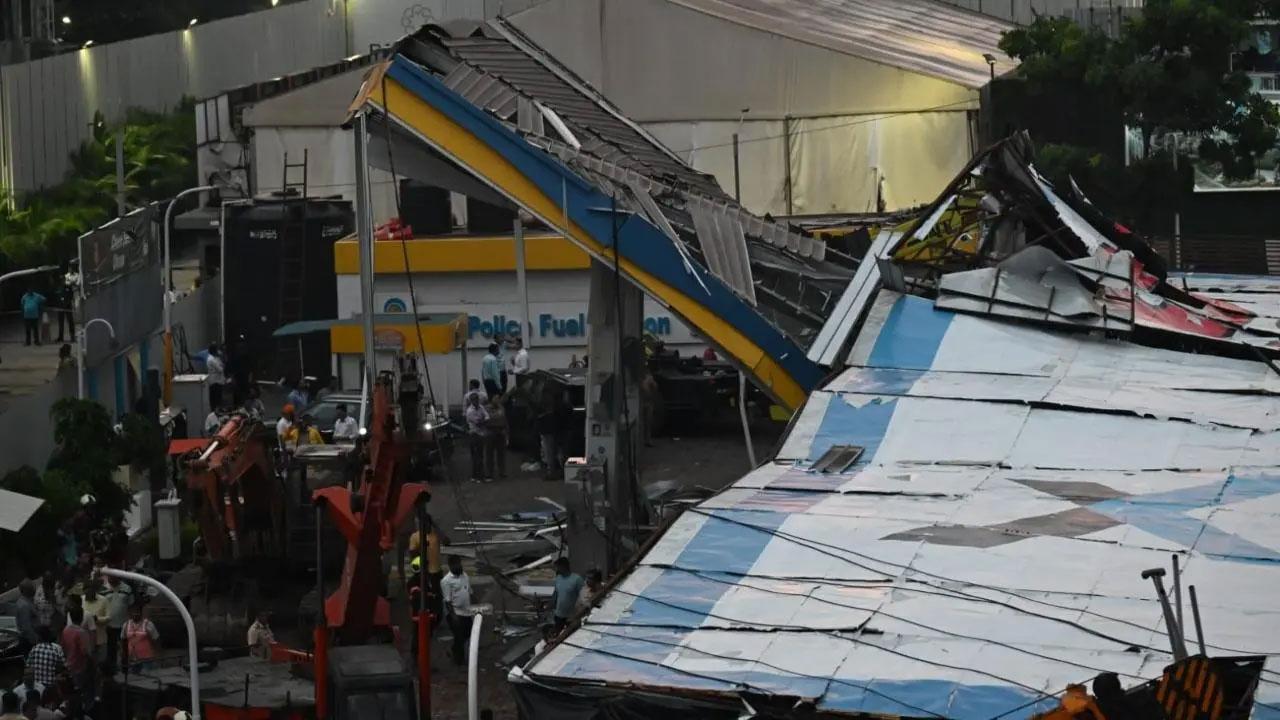According to a crime branch source, the SIT examined thousands of documents to determine the ownership of the land

The hoarding in Ghatkopar had collapsed on a petrol pump. File Pic/Sameer Markande
The Special Investigation Team (SIT) of the Mumbai Crime Branch, which is probing the hoarding collapse in Ghatkopar that led to the deaths of 17 people and injuries to many others, has written to the BMC seeking details of the licensing authority. They have also requested information about the officials responsible for addressing illegal constructions within their jurisdictions.
ADVERTISEMENT
Additionally, the SIT has summoned the ACP Admin of the Government Railway Police (GRP) to understand how permission was granted to Ego Media Private Limited, owned by accused Bhavesh Bhinde, by the former commissioner of GRP, Quaiser Khalid, despite knowing that the land belongs to the state government and that the BMC is the licensing authority.
According to a crime branch source, the SIT examined thousands of documents to determine the ownership of the land. “We have now confirmed that the land belongs to the state government, and the BMC is the licensing authority. We have summoned the GRP officials concerned to ascertain how permission was granted despite knowing that the land does not belong to them,” an officer said on the condition of anonymity.
The officer added, “Since it has been established that the licensing authority is the BMC, we have written to them seeking details about the licensing authority and the officials responsible for taking action against illegal hoardings. We will examine them to determine accountability.”
The SIT also stated that since it has been confirmed that the land is the state government’s, the license and approval given by former commissioner Quaiser Khalid were illegal. The officials found various irregularities in granting the licence to Ego Media Private Limited. According to sources in the SIT, Ego Media Private Limited received three boarding contracts through tender from the Railways for 30 years each. However, the fourth contract was granted without a tender, under the same conditions as the previous three.
 Subscribe today by clicking the link and stay updated with the latest news!" Click here!
Subscribe today by clicking the link and stay updated with the latest news!" Click here!







